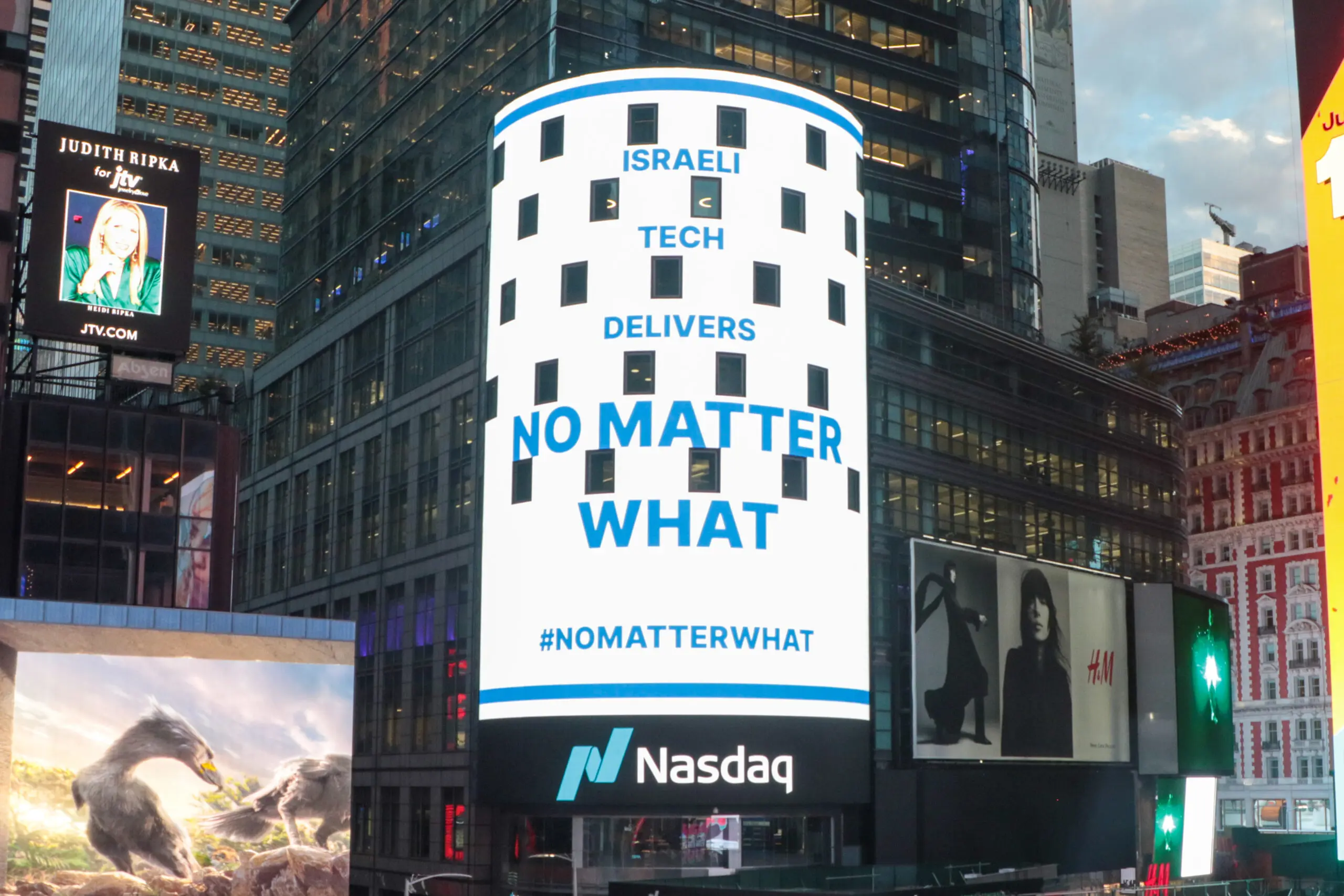In recent weeks, amidst ongoing conflict, one big question that comes up is:
How is the ecosystem doing and is there still Israeli tech investment opportunity?
Despite 15% of its workforce called to reserve duty and persistent war imagery, Israel’s tech sector remains resilient and productive.
The reality is far from a warzone, thanks to the Iron Dome, and life in tech-centric Tel Aviv continues with minimal disruption. The sector’s software focus and remote work capabilities help mitigate supply chain and transportation challenges. Israeli tech, largely export-oriented, maintains stable demand – and favorable exchange rates are bolstering the sector.
The Israeli technology sector is resilient and innovative, especially in the face of regional and domestic challenges. Despite a global economic slowdown and ongoing conflict, Israel’s ‘Startup Nation’ is still a dynamic force in the tech world, consistently moving forward and securing significant deals.
This environment presents a unique opportunity for investors, offering access to a high-potential market that historically demonstrates a return on investment.
Recent Israeli Tech Economic Activity
Against the backdrop of the Gaza conflict and unrest in Israel’s north, the tech sector has remained robust – especially in cybersecurity.
Major acquisitions have taken place, highlighting the sector’s strength and global relevance. American cybersecurity giant Palo Alto Networks acquired two Israeli cybersecurity companies for over a billion dollars. The acquisitions of Dig Security for $315 million and Talon Cyber Security for $625 million went ahead despite the war.
These acquisitions have had a substantial impact, with investors enjoying a significant return as Talon’s valuation jumped from $350 million in 2022 to $625 million.
Additionally, since October 7th, the Israeli tech sector has seen 22 investment rounds, accumulating $0.7 billion. The average investment amount across these rounds was $36 million, with cybersecurity and health tech companies leading the charge.
A standout investment was the $265 million funding in Next Insurance. This round brings the total amount raised by Next to approximately USD $1.1 billion since its inception. The latest funding was led by insurance giants Allstate and Allianz X, who are also entering into a strategic partnership with Next. Next Insurance specializes in insuring small and medium-sized businesses in the U.S., a market segment often overlooked by major insurance companies.
Another large raise was also recently announced by Eleos Health, an Israeli startup specializing in automated health tech solutions. The $40 million Series B funding round brought Eleos Health’s total funding to $68 million. The round was led by Menlo Ventures, with participation from F-Prime Capital, Eight Roads, Arkin Digital Health, SamsungNEXT, and ION, along with existing investors aMoon and lool Ventures.
The launch of a new fund by SYN Ventures, a prominent player in the cybersecurity venture capital space, is another indicator of investor confidence in Israel’s economic resilience. This strategic move to focus on early-stage investments in cybersecurity companies not only reflects confidence in the sector but also points to the enduring strength and adaptability of Israel’s economy. With over $75 million already raised and a shift in investment strategy to nurture conceptual-stage companies, SYN Ventures’ latest initiative reflects investor commitment and optimism in the Israeli tech landscape, even in the face of adversity.
Historical Data: Israeli Tech Investment Opportunity in Adversity
Historically, Israeli tech has shown a remarkable ability to not only survive but also to thrive following conflicts.
Data from the 2006 Lebanon War and Operation Protective Edge in 2014 are particularly telling, demonstrating that especially in times of uncertainty, there are investment opportunities in Israeli tech.
In the latter half of 2006, 52 companies raised funds, totaling $0.5 billion. This period marked the rise of companies like Seeking Alpha, Trusteer, and Gamida Cell. Additionally, companies founded during this time, such as Kaltura, Wix, and SolarEdge, later achieved significant funding and success.
During Operation Protective Edge in 2014, Israel’s GDP growth outpaced the OECD average, with the public market yielding positive returns for investors. Around 290 companies raised $1.74 billion, marking a 38% increase from the previous half. This period saw the emergence of companies like JFrog, ironSource, and Fiverr – all of which continue to be market leaders in their respective domains.
Emergency Funding Support
To further bolster the sector, several dedicated funds have been recently established to address the urgent funding needs of early-stage startups affected by the war. Focused mainly on startups with limited runway, these initiatives are a lifeline for at-risk companies that have strong investment potential.
Several of the main funds are:
IronNation: This program provides quick funding of up to $600,000 per startup. It includes dedicated professional assistance to help each startup achieve its goals.
SafeDome: Offers emergency funding to early-stage companies as a secure investment to extend their runway during difficult periods. Eligible startups must have raised at least $250,000 in the last two years, show significant activity damage, have a current runway of six months or less, and maintain monthly expenses below $100,000.
Arieli Capital: Allocated 5 million NIS to support early-stage Israeli startups, particularly those in the south affected by recent events. Along with financial aid, Arieli Capital provides mentorship and guidance to help these startups navigate through tough times.
Another positive signal to the investment community is a NIS 400 million bridge fund opened by the Israeli government’s Innovation Authority. This rapid grant program helps Israeli startups with significant resources and a short runway struggling to secure capital from their current investors.
Forward Momentum
The Israeli tech sector’s ability to continue delivering in challenging circumstances shows its continued attractiveness as an investment landscape. The combination of recent economic activities and historical data paints a picture of a sector that not only endures but flourishes in times of adversity.




